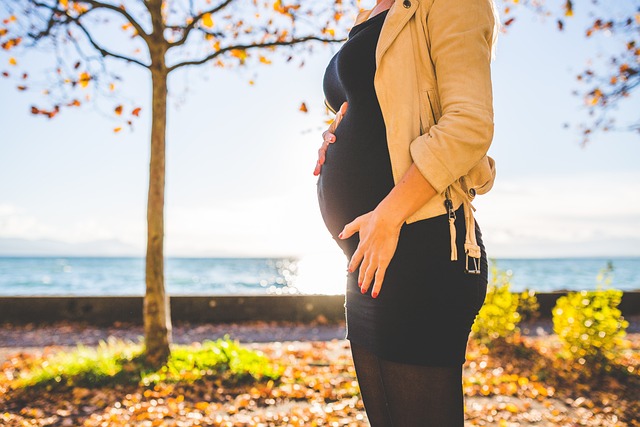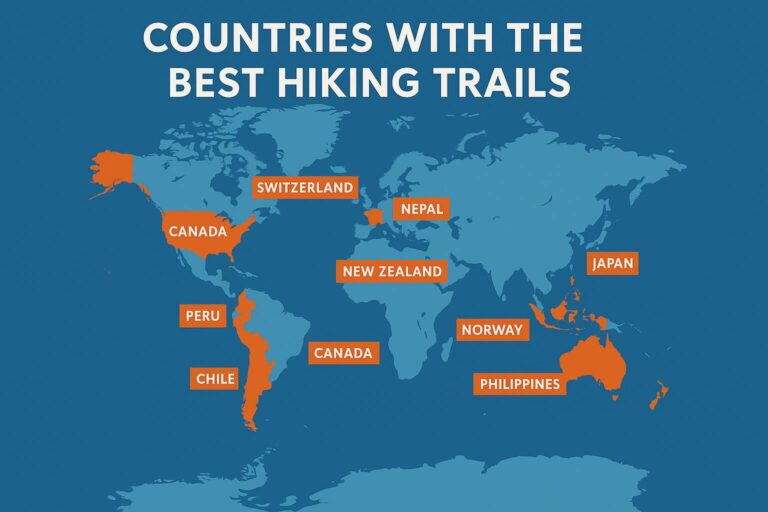Backpacking is an exciting outdoor activity that allows you to explore nature and challenge yourself physically and mentally. However, when you’re pregnant, there are added considerations and precautions that you need to take, especially during the first trimester.
This article is aimed at pregnant women who want to go backpacking during their first trimester, as well as their partners and friends who want to support them. I’ll discuss the benefits and risks of backpacking during pregnancy, as well as practical tips for planning and preparing for a backpacking trip. I’ll also cover the physical and emotional challenges that pregnant women may face while backpacking, as well as emergency preparedness. By the end of this article, you’ll be equipped with the knowledge and confidence to safely and comfortably go backpacking during your first trimester.
Benefits and Risks of Backpacking During First Trimester
Backpacking during the first trimester can provide many benefits for pregnant women, including:
- Exercise: Backpacking is a form of exercise that can help maintain fitness and overall health during pregnancy.
- Stress relief: Being in nature and getting away from the stress of everyday life can provide a much-needed mental break for pregnant women.
- Bonding: Backpacking can be a great opportunity for partners and friends to bond and support each other during a unique and challenging time.
However, there are also risks and considerations that pregnant women need to be aware of before embarking on a backpacking trip during their first trimester:
- Physical strain: Backpacking can be physically demanding and may cause fatigue, dehydration, and muscle soreness, which can be exacerbated during pregnancy.
- Risk of falls: The risk of falls and other injuries increases during pregnancy due to changes in balance and center of gravity.
- Exposure to environmental hazards: Pregnant women may be more vulnerable to environmental hazards such as extreme temperatures, altitude sickness, and insect bites, which can pose risks to both mother and fetus.
- Complications: The first trimester is a critical time for fetal development, and complications such as miscarriage, bleeding, or preterm labor may occur. Therefore, pregnant women should consult with their healthcare provider before embarking on any backpacking trip.
It’s essential to weigh the benefits and risks of backpacking during the first trimester carefully and make informed decisions based on individual circumstances and healthcare provider recommendations.
Planning a Backpacking Trip During the First Trimester
If you’re pregnant and planning a backpacking trip during your first trimester, there are several practical considerations to keep in mind to ensure your safety and comfort:
- Consult with your healthcare provider: Before planning a backpacking trip, it’s essential to consult with your healthcare provider to ensure that it’s safe for you and your baby.
- Choose an appropriate trail: Select a trail that is suitable for your fitness level and physical condition. Consider the terrain, altitude, weather, and distance when choosing a trail. It’s best to choose a shorter, less strenuous trail and avoid high-altitude hikes.
- Pack wisely: Make sure to pack essential items such as plenty of water, nutritious snacks, and appropriate clothing. It’s also crucial to pack a first-aid kit, a whistle, and a flashlight in case of emergencies.
- Find a suitable campsite: Choose a campsite that is level, dry, and protected from the wind. It’s best to choose a campsite that is close to a water source and has access to a toilet.
- Share your itinerary: Inform your partner or a friend about your itinerary, including your trail, campsite, and expected return date. It’s also essential to leave a copy of your itinerary with someone you trust.
- Rest and take breaks: Take frequent breaks and rest when needed. Listen to your body and don’t push yourself too hard.
- Avoid overexertion: Avoid carrying heavy backpacks or engaging in strenuous activities. It’s also important to avoid activities that may pose a risk of falls or injuries, such as climbing or jumping.
It’s important to prioritize safety and avoid taking unnecessary risks.
Physical and Emotional Challenges of Backpacking During First Trimester
Backpacking during the first trimester can be physically and emotionally challenging for pregnant women. Here are 6 common challenges that may arise and ways to cope with them:
- Morning sickness and fatigue: Morning sickness and fatigue are common symptoms during the first trimester of pregnancy. Pregnant women can manage these symptoms by taking frequent breaks, staying hydrated, and bringing light, nutritious snacks on the trail.
- Body changes: Pregnancy can cause changes in a woman’s body, such as weight gain, increased blood volume, and changes in balance. These changes can affect a woman’s ability to hike and navigate the terrain. Wearing supportive footwear and taking breaks when needed can help manage these changes.
- Emotional changes: Pregnancy can cause emotional changes such as mood swings, anxiety, and depression. It’s essential to take care of mental health during pregnancy by practicing self-care, getting enough sleep, and engaging in activities that bring joy and relaxation.
- Managing food and water intake: Staying hydrated and nourished during a backpacking trip is crucial for pregnant women. It’s important to bring enough water and nutritious snacks on the trail and to avoid consuming unsafe foods such as raw or undercooked meat, fish, or eggs.
- Coping with environmental stressors: Environmental stressors such as extreme temperatures, insect bites, and high altitude can affect pregnant women differently. It’s important to be prepared for these stressors by wearing appropriate clothing, using insect repellent, and acclimatizing to high altitudes before starting the hike.
- Safety concerns: Pregnant women may have concerns about their safety and the safety of their unborn child while backpacking. It’s important to be aware of potential hazards on the trail and to follow safety guidelines such as staying on the trail, avoiding wildlife, and avoiding unsafe activities.
Preparing for Emergencies During a Backpacking Trip
While backpacking during the first trimester, it’s essential to be prepared for emergencies that may arise. Here are some key steps to take to prepare for emergencies:
- Identify potential emergencies: Pregnant women should be aware of potential emergencies that may arise during a backpacking trip, such as injuries, illness, or complications with the pregnancy. Knowing what to look for and how to respond can help prevent emergencies from escalating.
- Know when to seek medical attention: Pregnant women should know when to seek medical attention in case of an emergency. Symptoms such as bleeding, severe abdominal pain, or contractions can indicate a medical emergency and require immediate attention.
- Prepare a first-aid kit: Pregnant women should pack a well-stocked first-aid kit that includes essential items such as bandages, antiseptic, pain relief medication, and a thermometer. It’s also important to include any necessary medication for pregnancy-related symptoms such as nausea.
- Plan for emergency evacuation: Pregnant women should be prepared for emergency evacuation if necessary. It’s important to have a plan in place and to share it with hiking partners and loved ones before leaving for the trip. In case of emergency, pregnant women should try to stay calm, follow the evacuation plan, and seek medical attention as soon as possible.
- Bring a communication device: Bringing a communication device such as a satellite phone, a personal locator beacon, or a two-way radio can help in case of an emergency. These devices can be used to call for help or to communicate with others in case of an emergency.
Conclusion
Backpacking during the first trimester can be a rewarding and exciting experience for pregnant women, but it’s important to prioritize safety and health. By being aware of the benefits and risks of backpacking during pregnancy, pregnant women can make informed decisions and plan accordingly.
Practical tips such as consulting with a healthcare provider, choosing an appropriate trail, packing wisely, finding a suitable campsite, and taking frequent breaks can help pregnant women stay comfortable and safe while backpacking.
Physical and emotional challenges such as morning sickness, fatigue, body changes, and environmental stressors may arise during the trip, and pregnant women should be prepared to manage them. Additionally, preparing for emergencies such as injuries, illness, or complications with pregnancy is crucial.
Ultimately, pregnant women should prioritize safety and listen to their bodies when backpacking during the first trimester. With the right preparation, support, and mindset, pregnant women can enjoy the outdoors and make lasting memories during this unique and exciting time.








